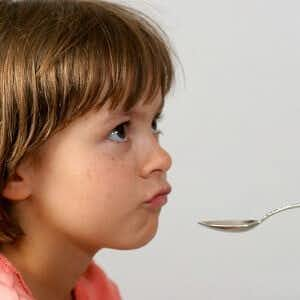
Are you unknowingly putting your child at risk of an overdose? Every day dozens of children end up in emergency rooms because they have received too much medicine. Some die.
These tragedies involve both over-the-counter and prescription medicine and most could be prevented.
Last year, ProPublica documented one terrible case. Christina and Eric Hutto had given their baby Brianna Tylenol for a cold and fever. A nurse had suggested one teaspoon every four hours. But the Infants’ Tylenol Christina bought at Walmart was more concentrated and had very different dosing instructions from the Children’s Tylenol the nurse had in mind. The Huttos used a little plastic cup with teaspoon markings on it to measure out the syrup carefully, then used the dropper that came with the medicine to get it in the baby’s mouth. They were conscientious–but didn’t realize they were overdosing their baby.
When the baby stopped crying and became listless, the parents got alarmed and took her to the hospital. It took too long to discover they had accidentally administered an acetaminophen overdose. The baby’s liver had been destroyed and she died two weeks later despite heroic efforts in pediatric intensive care units.
This tragic case report is just the tip of the iceberg. A new study in the journal Pediatrics (online, July 14, 2014) reveals that roughly 40 percent of parents make errors measuring medicines for their children. Dosing instructions involving teaspoons or tablespoons are especially likely to lead to mistakes.
The researchers point out that it is easy to confuse teaspoons (tsp) and tablespoons (tbsp). Even if a parent understands what the doctor or nurse intended, household utensils are inexact measuring devices. They can vary dramatically from the intended dose.
In this study of 287 parents who administered medicines (mostly antibiotics) to their children, about one in six used a kitchen spoon. Others used more accurate measuring tools: oral syringes, marked droppers, dosing cups or dosing spoons.
The hospital and pharmacy inadvertently made it more difficult for parents to follow instructions. The dosing information parents were given in the ER was often in the metric system such as ml for milliliters. But when parents picked up the medicine from the pharmacy, the label sometimes specified the dose in teaspoons. Parents don’t necessarily know there are 5 ml in a teaspoon and doing calculations in the middle of the night when a child is fussing is not ideal.
The authors recommend eliminating teaspoons and tablespoons from all pediatric dosing information. Instead, liquid medicines for children should have the doses expressed exclusively in milliliters and parents should be provided with accurate measuring devices. Oral syringes are one of the best ways to squirt a carefully measured dose of medicine into a child’s mouth. Child-friendly medicine measuring spoons marked in milliliters are another option.
Parents are not the only ones who make mistakes. Drug manufacturers that offer dosing guidelines based on age ranges rather than weight contribute to the problem.
Getting the dose right is critical for using medicine safely. Whether the patient is two or 92, calculating the proper dose and measuring it accurately is essential.
2/25/19 redirected to: https://www.peoplespharmacy.com/articles/are-you-giving-your-child-the-right-dose/

